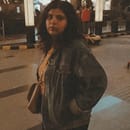Digital Kids– Victor Taiwo (please listen to this song while reading this)
When I first looked up the synopsis for Dear White People, I read the words Satire and Comedy-drama and so, I wondered what this show aspires to stimulate us with? A deep and scripted commentary on racial identities in a fictional Ivy League college or just plainly enunciating our insights through a sit com-ish college drama. Satire aimed to induce an attempt within this series to portray its initial definition: the use of humour, irony, exaggeration, or ridicule to expose and criticize people’s stupidity or vices, particularly in the context of contemporary politics and other topical issues. When I saw Dear White People, I felt that they were very isolated and alienated on a campus they concluded had already gone out of their way, to keep them out which was the case a lot of times too.
What I initially saw between the lines of character development was a foetus storyline of some individuals who have been hurt several times and been identifying their trauma and pain somewhat as their face in the mirror, something which was ingrained in their skin so they had to suffer for an entirety of being just themselves.
Some reviews I read prior to starting this show was how everyone was absorbed in pain, they would fetishize their sadness, which was so redundant to even consider because no one can embrace pain in just one particular way. No one can make it out that easily when they don’t even know why and what they are running from and even if they do, they can’t help but still run.
The main plot of the series was racism and not the characters who were inflicted within these uncomfortable spaces, however, the deeps of the show that surfaced at the most appropriate times were perhaps what kept me going and watching it, I could see them in a thousand places from a thousand point of views and hence my fondness grew more for Samantha, Joelle, Gabe, Reggie, Coco, Troy, and Lionel. The show has done a tremendous job with helping all the characters navigate through their pain on campus throughout the series in different approaches, and so nothing was stagnant and that’s what made it easier for me to drown in those character lines and their evolution.
There was this particular episode when Reggie Green developed an App for voting whether a person was ‘woke’ or not, while the discussions were heavily illustrated with revealing the bigoted patterns of free speech in this world and people who capitalize on the power and take the attitude of the administration along with people who often discount, manipulate or diminish the grievances of people of colour over an ignorantly woke atmosphere, of not even acknowledging the oppression of the systematically marginalized communities who still live with those insufferable pains. This showcased typical campus scenarios of privilege reeking from individuals and them trying to embark on a journey of achieving that kind of political correctness in a campus full of calculating entities and so the seething privilege of students and their ability to capitalise it or check it.
The series did, however, succeed in highlighting the imperfections in the strategies students use to cope with identity politics, whether they decide to approach it radically or choose to emerge in a crowd for not wanting to be held accountable for the justification of differential treatment that is subjected to otherwise. These challenges and decisions that will likely stay with them once they leave the campus like any of us. When we enter college, we start seeing life for it really is for the first time, and that’s how the series started with a message, “ The paradox of education is that the more educated an individual becomes, the more they understand the reality of the society they are being educated in’’.
College students like any of us, the cast is caught in a series of identity vices, constantly pushed to prove that they’re definitely this and not that. Something that formulates it as more of a meditation on identity generally, one that takes into account all of the social and political forces that shape who we are, or think we are. But then I think of the Pyramid that the third season indulges me with and makes me somewhat less miserable, to stop seeing everyone who’s above me or who’s beneath me, I just happen to see people beside me and people who are around me, I sometimes wonder, did I even suffer enough to feel this miserable, this soon and these many times. I try to relate my realities in accordance for it all to make sense to me and when it does make sense to me, when it all makes sense for me to see everything for what it really is and everyone for who they really are, I wish to undo everything, erase everything because the reality makes it suffocating for me to stand it somehow.
You know, kids like you
Aren’t supposed to know
That the world is broken
The sun is frozen
You know kids like you
Aren’t supposed to feel
Like the Earth is caving
The world is spinning for
You
You
You (Season one, chapter 6)


